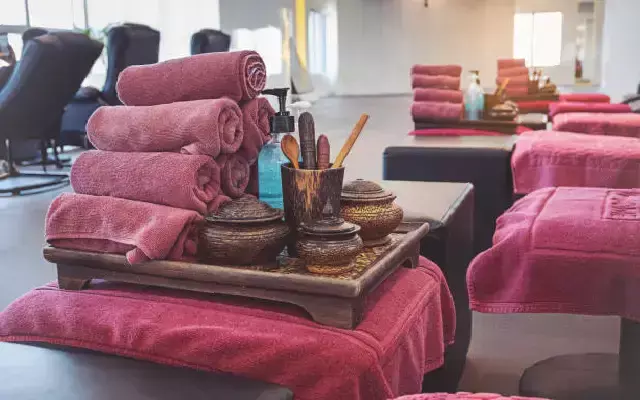
Advocate Urges Law to Regulate Massage Centres in Karnataka
The proliferation of massage centres, Ayurvedic clinics, and unisex beauty parlours in Karnataka has raised concerns about the alleged immoral activities taking place under the guise of wellness services. In a bid to curb such activities, Mangaluru-based advocate Manoraj Rajeev has urged the Karnataka government to formulate comprehensive rules to regulate these centres.
According to Rajeev, the lack of regulation has created a fertile ground for illegal activities, including prostitution, to flourish. He pointed out that many massage centres and beauty parlours operate without proper licenses, making it difficult for the authorities to monitor their activities.
Rajeev’s concerns are not unfounded. In recent years, there have been several instances of massage centres and beauty parlours being raided by the police, with many cases of prostitution and human trafficking being uncovered. The lack of regulation has also led to concerns about the quality of services being offered, with many centres allegedly providing substandard treatments that can be harmful to customers’ health.
To address these concerns, Rajeev has recommended that the Karnataka government adopt a legal framework similar to the one implemented in Kerala. Under the Kerala laws, massage centres and beauty parlours are required to obtain licenses, which are subject to strict scrutiny. The law also prohibits the operation of massage centres and beauty parlours within a certain radius of schools, colleges, and other educational institutions.
Rajeev believes that a similar law can be effective in regulating the massage centre and beauty parlour industry in Karnataka. “The Kerala model has been successful in curbing illegal activities and ensuring that massage centres and beauty parlours operate in a legitimate manner,” he said. “I urge the Karnataka government to adopt a similar law to ensure that these centres operate in a transparent and accountable manner.”
Rajeev also recommends that the Karnataka government establish a dedicated department to monitor and regulate the massage centre and beauty parlour industry. “The department can conduct regular inspections of these centres, issue licenses only to those that meet the required standards, and take action against those that violate the law,” he said.
In addition to regulating the massage centre and beauty parlour industry, Rajeev also recommends that the Karnataka government provide training and certification programs for massage therapists and beauticians. “This will help to ensure that these professionals have the necessary skills and knowledge to provide high-quality services to their clients,” he said.
Rajeev’s recommendations have been welcomed by many in the industry who believe that regulation is necessary to ensure that massage centres and beauty parlours operate in a legitimate and ethical manner. “We welcome any efforts to regulate the industry and ensure that our customers receive high-quality services,” said a spokesperson for the Karnataka Ayurvedic and Unani Practitioners Association.
The Karnataka government has taken some steps to regulate the massage centre and beauty parlour industry, including the introduction of a bill to regulate the industry in 2020. However, the bill has yet to be passed into law, and many in the industry believe that more needs to be done to ensure that these centres operate in a legitimate and ethical manner.
In conclusion, the regulation of massage centres, Ayurvedic clinics, and unisex beauty parlours is a critical issue that requires urgent attention from the Karnataka government. By adopting a legal framework similar to the one implemented in Kerala, the Karnataka government can help to curb illegal activities, ensure that these centres operate in a legitimate manner, and provide high-quality services to their customers.
News Source:
https://newskarnataka.com/s/zgbrcs






